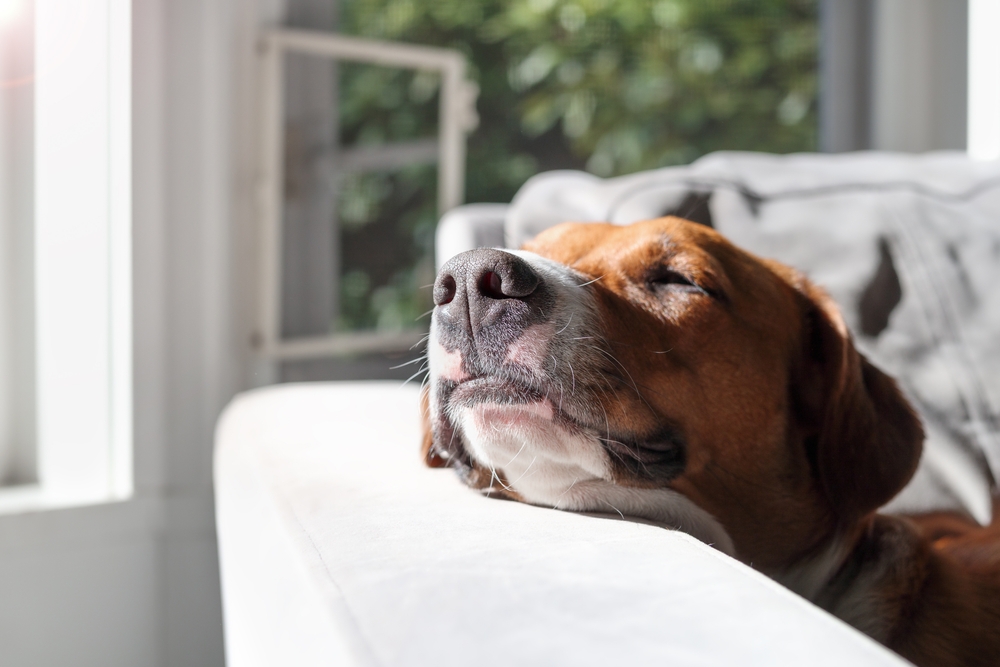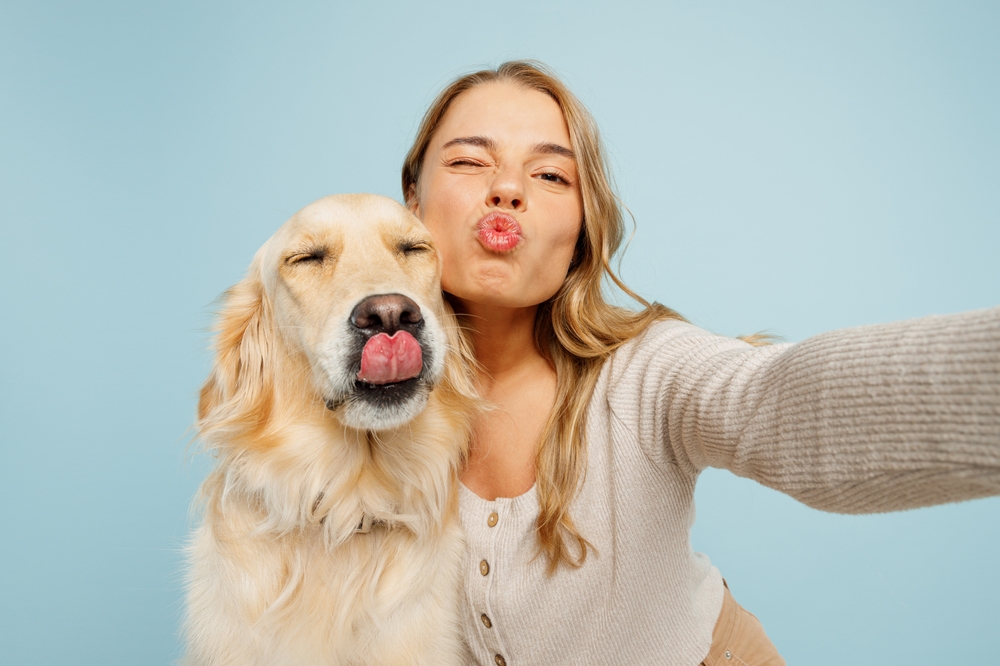Being a pet parent is a source of immense satisfaction and joy, however, it can also occasionally cause confusion when trying to understand why our furry friends behave the way they do.
So much so that pet parents regularly take to Google to find answers to their questions and, with 163,000+ monthly UK Google searches beginning ‘why does my dog/cat..?’, it’s clear people are keen to understand more about their companion.
To help pet parents solve their curiosity, Animal Friends Pet Insurance experts Catrin George, animal wellbeing specialist, and Jen Wormleighton, in-house vet, have shared the answers to some of the top Googled questions from cat and dog owners, as well as when a behaviour may be cause for concern.
Why does my pet lick me? (8,800 combined monthly Google searches)
Catrin explains: “Dogs and cats lick for similar reasons, whether they are licking themselves, objects or in this case, their owners. There are a number of reasons why they do this including bonding, showing affection, attempting to groom you, and trying to get your attention.
“However, there are less positive reasons why your pet may be licking you. Both dogs and cats sometimes lick excessively as a way of self-soothing if they’re feeling anxious. Licking can also indicate potential health conditions, injury or general discomfort. If your dog or cat has suddenly started licking you a lot more than before, you should consider a visit to the vet if the behaviour persists to ensure there are no underlying causes for concern.”
Why does my pet stare at me? (4,300 combined monthly Google searches)
Catrin shares: “As with licking, there’s a wide range of reasons why your dog or cat may be staring at you. First and foremost, your pet loves you! There are going to be times where your pet is gazing at you with love and affection, but there can be other reasons too.
“Your furry friend may be trying to get your attention to play, go for a walk, feed them or let them out for the toilet. They may also be confused and trying to understand what you are doing, or whether you’re about to do something different. They could also be looking at you for guidance or reassurance if they’re confused or scared.
“If your pet is gazing at you for an unusual amount of time, take a moment to think about whether they may need something from you, or see if you can figure out the reason they may want your attention.”

Why does my dog eat poo? (1,450 monthly Google searches)
Jen says: “Seeing your dog eat poo can be particularly confusing, as well as making the inevitable dog kisses somewhat less pleasant. Sometimes the reason is as simple (and confusing) as your pup likes the taste. They may also be hungry, bored or stressed, or seeking your attention.
“Eating poo isn’t particularly unusual for many pooches, but as it can be unpleasant for us as their parents, it can be preferable to attempt to discourage the behaviour. You should never discipline your pet for eating poo, but try to distract them or call them away from it if you see them going towards some whilst out on a walk or in your garden. If you also own a cat, move their litter box somewhere out of your pup’s reach to help discourse the behaviour.
“If your dog rarely eats poo and has suddenly begun eating it regularly, it may be an indicator that there is something wrong. As with any sudden and noticeable changes in behaviour, consider taking your dog for a checkup at the vets if the behaviour persists.”
Why does my cat headbutt me? (350 monthly Google searches)
Catrin comments: “A gentle headbutt from your feline companion is about as big a compliment a cat can give you. It’s their way of telling you, “I feel safe and secure with you.”
“Cats have scent glands over their head which they use to mark their territory. Headbutting, sometimes affectionately called ‘bunting’, helps them to leave their scent on things that they consider to be theirs, including their owners. Cats may also ‘bunt’ to get your attention, but it’s not a behaviour that should be cause for concern.”
Why does my dog shake? (1,000 monthly Google searches)
Jen reveals: “There are different types of shaking you may see from a dog which can indicate several things. A whole body shake for example, especially after a swim, walk in the rain, or bath, is just a simple and effective way to dry themselves off when they’re wet.
“If the shake is more akin to a tremble, there could be cause for concern. Dogs do sometimes tremble if they’re feeling happy or excited, or when they’re cold in the same way a human would shiver. However, shaking can also be a sign of stress or anxiety, or more worryingly of pain, discomfort, illness or poisoning.
“In many cases, shaking is not a reason for you to worry about your pup. If your dog is shaking persistently you should consider seeing a vet, and if the shaking is accompanied by signs of sickness, including vomiting, an upset stomach, excessive panting or seizures, you should speak to your vet urgently.”
Why does my cat make biscuits on me? (250 monthly Google searches)
Catrin expands: “A term that may be confusing for non cat owners, ‘making biscuits’ refers to the cat behaviour of kneading with their paws. They can often do this on their humans, other animals or inanimate objects.
“Cats knead in order to soothe themselves, help themselves relax, show affection and mark their territory. The behaviour also mimics how they would knead their mother when they were kittens to stimulate milk production, and it’s a behaviour that some cats may not grow out of as they get older.”
Why does my dog keep sneezing? (1,000 monthly Google searches)
Jen says: “Like humans, dogs sneeze when their nose is irritated. Also like humans, dogs can experience allergies, including hayfever and dust allergies, which may result in them sneezing more than usual. They also spend a lot of time with their nose close to the ground or rummaging through things, meaning that it is likely they will occasionally sniff something that makes them sneeze.
“If your dog is sneezing a lot, it could be a sign that they are experiencing allergies. If this is the case, speak to your vet for an allergy test and advice on the best ways to minimise exposure to the allergen. If the sneezing is accompanied by scratching or pawing at their nose, it could be a sign that your pup has something lodged in their nose. They may be able to free it themselves, but if the behaviour persists, or if they appear to be in distress or severe physical discomfort, you should visit your vet urgently.”
To find out more about Animal Friends, as well as their dog insurance and cat insurance policies, visit: https://www.animalfriends.co.uk/
From Wellness to Wanderlust: How Pets Contribute to a Richer Lifestyle





